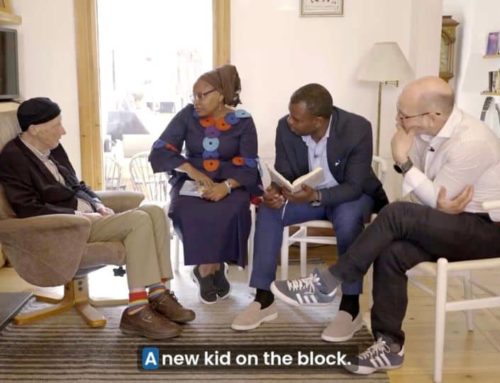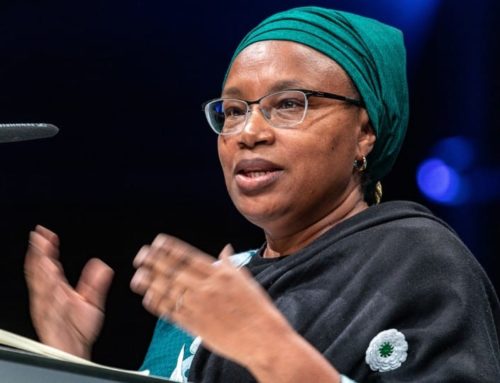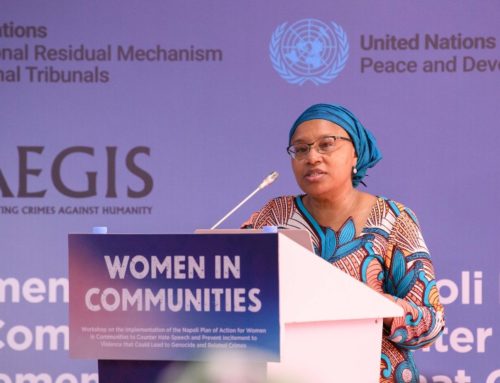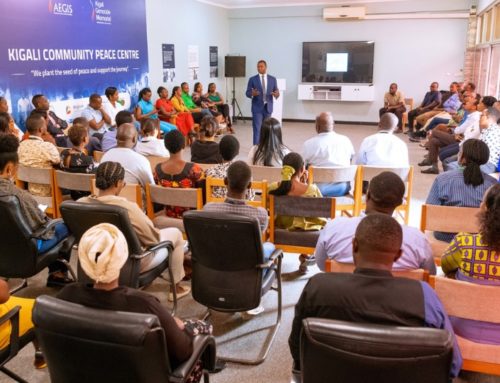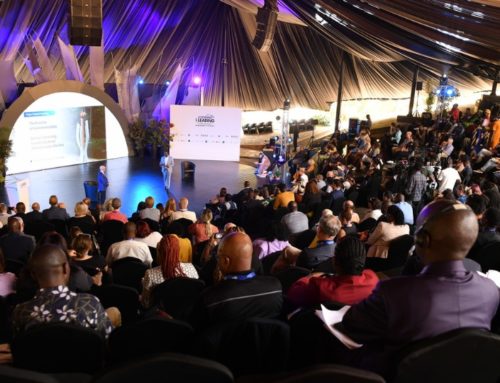 18 Jan 2013 – Dr Mukesh Kapila, Special Representative for the Aegis Trust and former UN Resident and Humanitarian Coordinator for Sudan, has just travelled 1000km through Sudan’s Nuba Mountains and Blue Nile, where international humanitarian relief access has been blocked since armed conflict erupted there between the Sudanese Government and opposition groups in June 2011. Hundreds of thousands of displaced people remain in the two areas, where Government bombing has severely hampered agricultural activity for the past 18 months, triggering desperate food shortages. Dr Kapila also visited South Sudan’s frontier with Darfur, where a ten-year crisis continues to affect millions displaced.
18 Jan 2013 – Dr Mukesh Kapila, Special Representative for the Aegis Trust and former UN Resident and Humanitarian Coordinator for Sudan, has just travelled 1000km through Sudan’s Nuba Mountains and Blue Nile, where international humanitarian relief access has been blocked since armed conflict erupted there between the Sudanese Government and opposition groups in June 2011. Hundreds of thousands of displaced people remain in the two areas, where Government bombing has severely hampered agricultural activity for the past 18 months, triggering desperate food shortages. Dr Kapila also visited South Sudan’s frontier with Darfur, where a ten-year crisis continues to affect millions displaced.
“I witnessed the 21st century’s first genocide in Darfur during my time as UN Chief in Sudan in 2003-2004. Returning to Sudan a decade later, I saw the same tactics of systematic ethnic cleansing in full play in the Nuba Mountains and Blue Nile,” says Dr Kapila, whose visit to the two areas was organised by the Aegis Trust in conjunction with the Humanitarian Aid Relief Trust (HART).
“Very large numbers of civilians across the troubled borderlands of this vast country continue to be terrorised by systematic bombing from the sky,” says Kapila. “They are being burnt out of their homes and off their fields. Meanwhile, the international community’s piecemeal approach to Sudan’s different theatres of conflict has obscured the overall picture and proved ineffective as a means to thwart what could now be the world’s greatest human rights disaster.”
An estimated four million people have been affected by Sudan’s ongoing conflicts, of which at least 0.5 million are refugees in neighbouring Chad, South Sudan and Ethiopia. Included in the numbers are at least 2.5 million people with very limited or no access to humanitarian relief.
John Ging, Director of UN Humanitarian Operations, last week called on the UN Security Council to move from rhetoric to action on the matter of aid access, describing ‘incredibly alarming’ accounts of people in the Nuba Mountains and Blue Nile having to eat roots and leaves to survive.
So far the UN Security Council has looked to the African Union to lead on resolution of the crisis. Attention is now focussed on special meeting about the Sudans, to be held on 25 January at the AU summit in Addis; an opportunity the AU could take to establish robust leadership on ending deadlock over aid access or supporting other means to reach those to whom aid is currently blocked.
“Long-term resolution of Sudan’s entrenched problems will require justice, accountability, and fair, equal treatment of all Sudan’s citizens by their rulers,” says Dr Kapila. “Right now though, the suffering of those with no access to aid has reached desperate levels. It is deeply frustrating that diplomacy to secure aid access has achieved nothing so far. Has it even made matters worse by allowing delays and providing a fig leaf of diplomatic process behind which civilians have continued to be criminally targeted?” asks Dr Kapila. “At the UN Security Council in New York, and at the African Union summit in Addis next week, decision-makers need to ask themselves whether they are prepared to allow the loss of Sudanese lives that will result from continued obstruction to international humanitarian relief. This is on its way to becoming another Darfur-scale catastrophe.”
In Nairobi earlier today, Dr Kapila joined a panel of African civil society leaders, including Bishop Andudu Adam Elnail, urging African political leaders to use next week’s African Union Summit to end the humanitarian suffering in Sudan’s Southern Kordofan and Blue Nile states.
The panel identified the 25 JanuaryHeads of State meeting on Sudan as a key test of the AU’s “credibility” and urged African leaders to recognise the importance of addressing the conflict in the Nuba Mountains and Blue Nile for wider regional security.
Bishop Andudu of Kadugli in the Nuba Mountains said: “I am here on behalf of my people. This is a war of horror where children are dying every day. There are no vaccinations, medicine, there is nothing. In December there were over 230 bombings. We are calling for AU leadership at its summit next week. This is a rare opportunity that we mustn’t miss.”
Nagwa Konda, Director of the Nuba Relief Rehabilitation and Development Organization, said: “We have been waiting for the AU to take action; we have been hearing a lot, seeing agreements being signed and communiqués issued but nothing has changed on the ground. I implore the AU to translate all this paperwork into action. We need more than communiqués: you can’t eat a communiqué, a communiqué can’t protect you from air strikes.”
Shara Joshep Lago, a Muslim human rights activist and a former observer during the Blue Nile State elections, said: “I am from Blue Nile and have been a victim of events. I have been chased by aircraft and ground forces. I saw a pregnant woman forced to give birth under a tree and then take her child and keep running. I call upon the African Union and the League of Arab States to take action to protect civilians. The humanitarian aspects of the conflict should be a priority. Otherwise nobody will be alive to enjoy a future peace.”
Dr Kapila added: “I appeal to the AU to look at the humanitarian situation as a priority and establish a full commission of enquiry, with African leadership, into the situation on the ground.”

